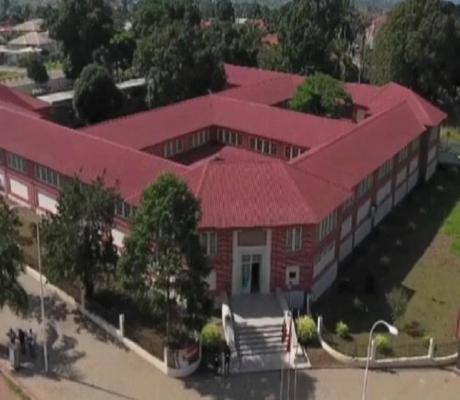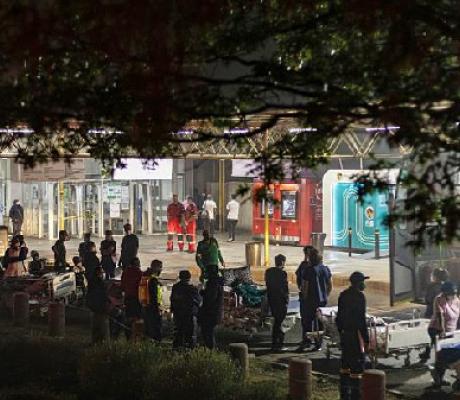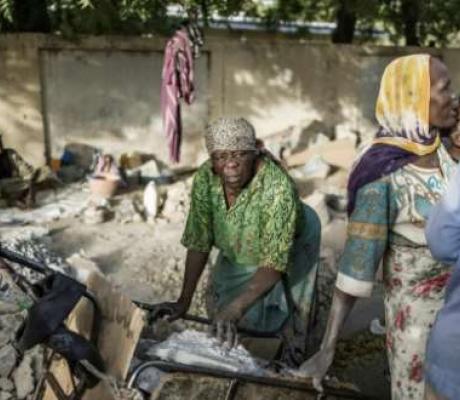In Nigeria’s Benue state, the food basket of the country, Mercy Yialase sits in front of her idle rice mill.
Demand is high across the nation, but she already has mounds of paddy rice that are going nowhere amid the COVID-19 lockdown.
“I can’t mill because the marketers are not coming,” Yialase said, referring to wholesale buyers, as she sat at a market stall in the city of Makurdi with dozens of other millers.
Although food truck drivers are meant to be exempt from lockdown restrictions, many are afraid for their own safety or fear they will be fined or arrested by overzealous police.
The situation in Nigeria, Africa’s most populous nation, is reflected across sub-Saharan Africa.
Trucking logistics firm Kobo360 said 30% of its fleet across Nigeria, Kenya, Togo, Ghana, and Uganda was not operating as a result. Several farmers said crops were rotting in the fields or at the depots waiting for trucks that never arrive.
And millers cannot get their milled rice to buyers. “There is no clarity around what can move around … or what is essential transportation,” said Kobo360 co-founder Ife Oyedele, adding that truck bosses were afraid. “They’re scared to go out and have their drivers on the road.”
Millions of people in the region are at risk of not getting the food they need due to coronavirus disruptions, according to the United Nations and World Bank.
While domestic crops and capacity go to waste, the imports the region relies on have also dried up as major suppliers, including India, Vietnam, and Cambodia, have reduced or even banned rice exports to make sure their countries have enough food to cope with the pandemic.
Meanwhile, scarcity has driven up prices of the main staple food beyond the reach of some people since lockdowns were announced in three states at the end of March to tame the spread of the virus.
Sub-Saharan Africa, the world’s largest rice-importing region, could be heading from a health crisis straight into a food security crisis, the World Bank warns.
More widely, the United Nations says coronavirus disruptions could double the number of people globally without reliable access to nutritious food, to 265 million.
“There is no question about it that there is an imminent problem of food insecurity, not only in Nigeria but also in nations all over the world,” Nigeria’s Agriculture Minister Muhammed Sabo Nanono told Reuters.
Source: vanguardngr.com






